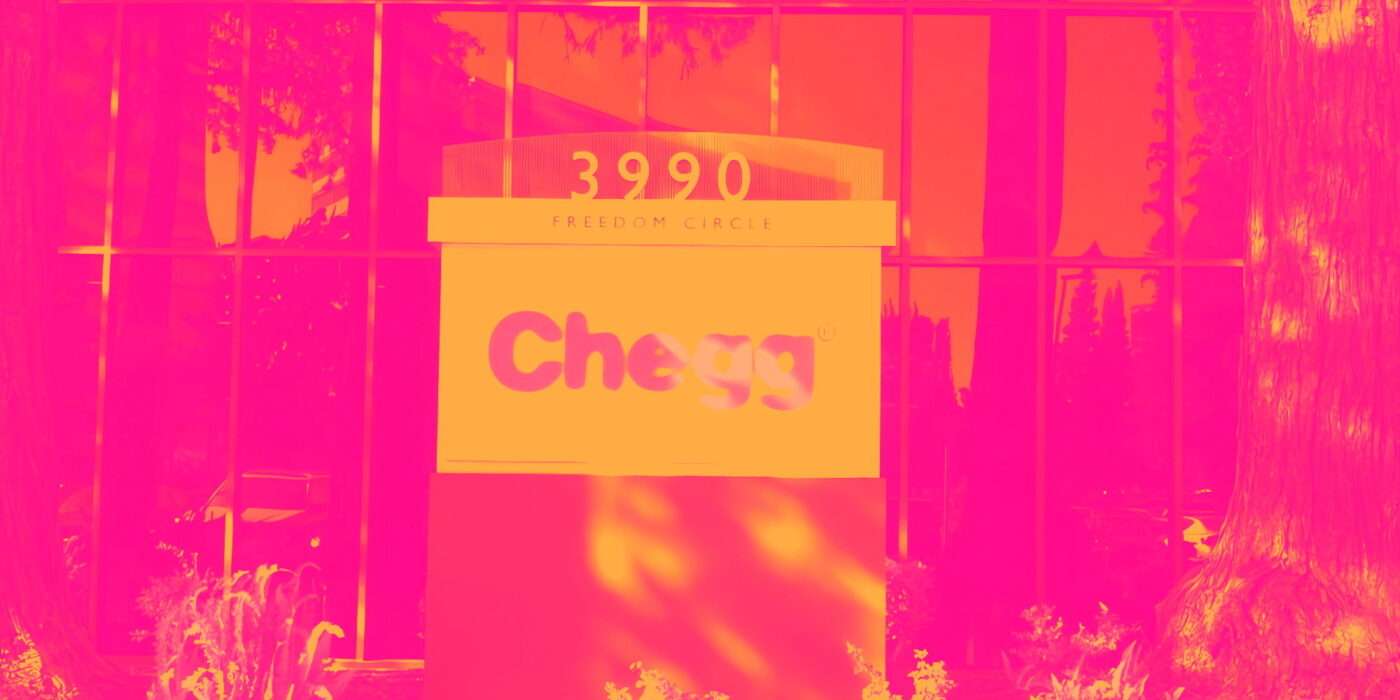
Small-cap stocks can be incredibly lucrative investments because their lack of analyst coverage leads to frequent mispricings. However, these businesses (and their stock prices) often stay small because their subscale operations make it harder to expand their competitive moats.
The downside that can come from buying these securities is precisely why we started StockStory - to isolate the long-term winners from the losers so you can invest with confidence. That said, here are three small-cap stocks to swipe left on and some alternatives you should look into instead.
Chegg (CHGG)
Market Cap: $131.1 million
Started as a physical textbook rental service, Chegg (NYSE:CHGG) is now a digital platform addressing student pain points by providing study and academic assistance.
Why Do We Pass on CHGG?
- Struggled with new customer acquisition as its services subscribers averaged 21.7% declines
- EBITDA profits fell over the last few years as its sales dropped and it struggled to adjust its fixed costs
- Sales were less profitable over the last three years as its earnings per share fell by 45.3% annually, worse than its revenue declines
Chegg’s stock price of $1.19 implies a valuation ratio of 1.8x forward EV/EBITDA. Dive into our free research report to see why there are better opportunities than CHGG.
Planet Fitness (PLNT)
Market Cap: $8.61 billion
Founded by two brothers who purchased a struggling gym, Planet Fitness (NYSE:PLNT) is a gym franchise that caters to casual fitness users by providing a friendly and inclusive atmosphere.
Why Do We Think Twice About PLNT?
- Disappointing same-store sales over the past two years show customers aren’t responding well to its product selection and in-store experience
- Demand will likely be soft over the next 12 months as Wall Street’s estimates imply tepid growth of 9.5%
- Eroding returns on capital suggest its historical profit centers are aging
At $104.29 per share, Planet Fitness trades at 31.3x forward P/E. To fully understand why you should be careful with PLNT, check out our full research report (it’s free for active Edge members).
Rush Enterprises (RUSHA)
Market Cap: $3.84 billion
Headquartered in Texas, Rush Enterprises (NASDAQ:RUSH.A) provides truck-related services and solutions, including sales, leasing, parts, and maintenance for commercial vehicles.
Why Do We Think RUSHA Will Underperform?
- Flat sales over the last two years suggest it must find different ways to grow during this cycle
- Forecasted revenue decline of 3.6% for the upcoming 12 months implies demand will fall off a cliff
- Performance over the past two years shows each sale was less profitable, as its earnings per share fell by 12% annually
Rush Enterprises is trading at $49.33 per share, or 15.6x forward P/E. Check out our free in-depth research report to learn more about why RUSHA doesn’t pass our bar.
High-Quality Stocks for All Market Conditions
Your portfolio can’t afford to be based on yesterday’s story. The risk in a handful of heavily crowded stocks is rising daily.
The names generating the next wave of massive growth are right here in our Top 6 Stocks for this week. This is a curated list of our High Quality stocks that have generated a market-beating return of 244% over the last five years (as of June 30, 2025).
Stocks that made our list in 2020 include now familiar names such as Nvidia (+1,545% between March 2020 and March 2025) as well as under-the-radar businesses like the once-small-cap company Comfort Systems (+782% five-year return). Find your next big winner with StockStory today for free. Find your next big winner with StockStory today. Find your next big winner with StockStory today
StockStory is growing and hiring equity analyst and marketing roles. Are you a 0 to 1 builder passionate about the markets and AI? See the open roles here.
